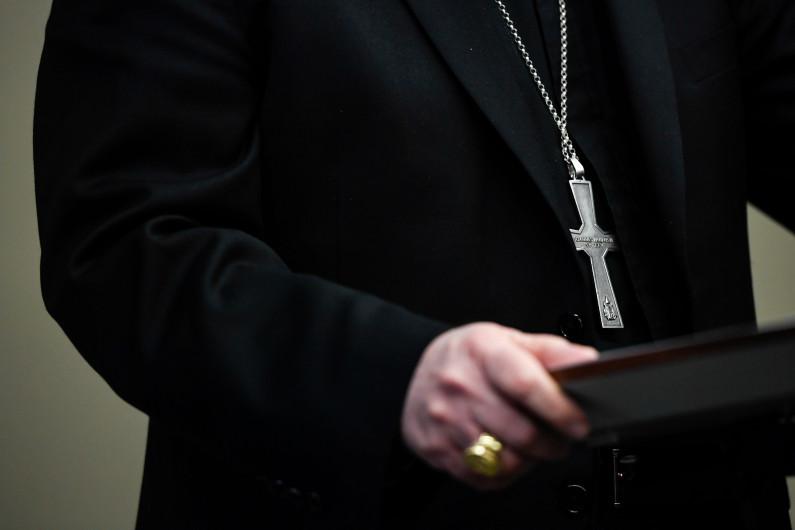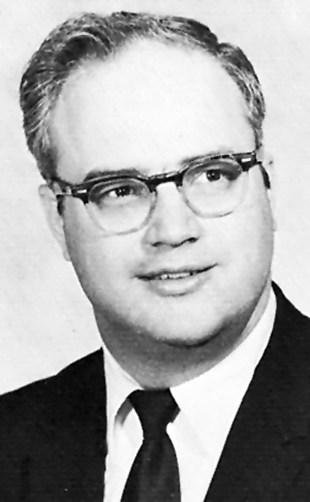|
Review of sex abuse by Catholic priests will not include one-third of Colorado’s publicly accused clergy
By Elis Schmelzer
For five years in the late 1960s and early ’70s, a Catholic brother used ether to subdue at least 23 teenage boys at a Catholic high school in Pueblo. He told them he was conducting an “experiment.” Instead, they alleged in a lawsuit, he molested and raped them in the band room. The Marianist brother, William Mueller, was later transferred to schools in St. Louis, where lawsuits claim he continued to abuse students. Some of the boys later said in lawsuits that they told the Diocese of Pueblo and school leaders at Roncalli High School about the abuse, but nothing was done. Mueller’s case is one of the most high-profile Catholic clergy abuse cases in Colorado — it resulted in a settlement with the Diocese of Pueblo and Mueller’s religious order for $4 million. But Mueller’s case and at least eight others like it will not be included in the third-party review announced last month by the state attorney general and the Catholic Church in Colorado because Mueller was supervised by a religious order, not a diocese. His victims will not have access to the recently announced reparations fund or reconciliation services, because he was under the supervision of a religious order and not one of Colorado’s three dioceses. A spokesman for Colorado Attorney General Phil Weiser did not respond to an emailed question about why religious-order priests and brothers were excluded from the review, which was initiated by Weiser’s predecessor and finalized after he took office. The Archdiocese of Denver, when asked for a list of credibly accused clergy named in lawsuits, declined to comment on specific cases pending completion of the review. In the Catholic Church, religious-order priests and brothers — such as the Jesuits and Franciscans — are assigned to churches, schools and other placements by their order and do not directly report to a bishop. However, bishops must approve an order priest’s placement before the priest can perform sacraments there. Some members of religious orders are ordained priests while others are religious brothers, who cannot perform Mass or other sacraments. Nationally, about a third of all Catholic clergy belong to religious orders. An analysis of Denver Post archives and a public database collected by BishopAccountability.org — which documents accusations involving the Catholic Church from across the country — found approximately 25 priests and brothers who have been publicly accused over the last 70 years in lawsuits, news stories and in criminal court of sexually abusing minors in Colorado while assigned to the state. Nine of those accused were not diocesan priests, which means they will not be subject to the independent review. Jeb Barrett, leader of the Colorado chapter of the Survivors Network of those Abused by Priests, said that one of the group’s concerns was that the review did not include abuse by religious order priests, nuns or deacons. He said that he and other SNAP leaders brought up the need for including religious-order clergy at their first meetings with former Attorney General Cynthia Coffman in the fall. “I don’t know why the attorney general’s office didn’t press for that more,” he said. “As long as we’re hiding abusers and predators, we’re not going to heal.” The agreementThe agreement between the three Colorado dioceses and the attorney general’s office states that the dioceses have to turn over any files that contain an allegation of abuse of a minor by religious-order priests, but the third-party investigators will have a limited scope in investigating those claims. For example, the contract later forbids the investigator, former federal prosecutor Bob Troyer, from conducting interviews with people who claim abuse by a religious-order priest. Religious-order priests will not be included in the final report published by the investigator listing priests with credible allegations of child sex abuse against them, Lawrence Pacheco, spokesman for the attorney general’s office, said in an email in response to questions from The Denver Post. “The independent review does not include religious-order priests,” Pacheco said. “If someone contacts the AG’s office or hotline with an allegation of sexual abuse by a religious-order priest, then it will be referred to a local DA. It is our understanding that if one of the dioceses receives a complaint involving a religious-order priest, that diocese will follow its normal procedures in referring these types of allegations to the religious order.” Pacheco also said that alleged victims of religious-order clergy will not have access to the independent reparations fund financed by the dioceses. Therefore, they also will not have access to the support services offered in connection to the reparations program. Those victims can, however, file a report with the attorney general’s office’s victim advocate online or by calling 720-508-6003, Pacheco said. The office will then get the alleged victim in touch with services. Twenty-two male religious orders currently operate in the Archdiocese of Denver, according to the archdiocese’s website. Eight orders worked in the Diocese of Pueblo in 2017, according to a diocese directory from that year. Some orders are restricted to monastery life away from the public, while others — such as the Theatines, Carmelites and Jesuits — have brothers working in local parishes and schools. Some, but not all, are ordained priests. “Any investigation that only includes diocesan priests is only looking at one piece of the puzzle,” said Florida attorney Adam Horowitz, who represented victims of Mueller, the Pueblo brother, in their lawsuits against the church as well as victims in dozens of other cases across the country. Horowitz also noted that religious-order clergy often are assigned to work in schools and rural, poor areas, where victims could be particularly vulnerable. Known abusers in ColoradoAt least nine priests and brothers in religious orders have been publicly named as abusers in Colorado, according to court records, Denver Post archives and BishopAccountability.org. The Conference of Major Superiors of Men, the national organization that represents religious orders in the U.S., issued a letter in October detailing best practices for releasing names of those accused. The conference, however, has no direct power over the orders. Several orders have released their own lists of clergy credibly accused of abuse. The Jesuits have released lists covering all of their U.S. regions, including one that found 13 such priests who worked in Colorado. Other orders have released partial lists. Many dioceses have released their own lists, but not included religious order priests. Religious-order priests and brothers accused of abusing minors in Colorado while working in the state include:
Barrett, the local leader of the abuse survivor’s network, said more victims and more abusers will come out as part of the third-party review. He estimated that a full list of deacons, brothers, priests and bishops credibly accused of sex abuse of a minor in Colorado would total between 50 and 100. “When that list comes out, more victims will come out and say, ‘Me too, me too,’ ” he said. “This is the tip of the iceberg.” Contact: eschmelzer@denverpost.com
|
.
Any original material on these pages is copyright © BishopAccountability.org 2004. Reproduce freely with attribution.

